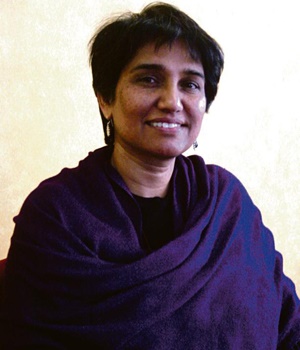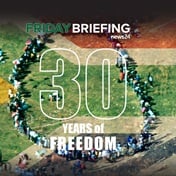
On October 3, the 20th anniversary of the SA Human Rights Commission (SAHRC), we travelled to Xhora Mouth in the Eastern Cape to report back to the community that laid a complaint regarding access to emergency medical services, which led to the SAHRC hearing on emergency medical services in the Eastern Cape earlier this year.
We expanded our investigation and hearing to include Isilatsha, Nier, Lusikisiki and Zithulele.
With great dignity, representatives from these rural communities provided moving testimony on the devastating consequences of the lack of access to emergency medical services.
Elders spoke of the fact that they had never seen an ambulance in their lives.
Old and young spoke of the disrespect they received when they phoned call centres to secure urgent medical treatment to save the life of someone who was desperately ill or had been in an accident or a natural disaster.
They reported being told, disparagingly, that government gave them social grants that they should use to pay for transport. Many shared that a single trip by private transport often cost more than R800.
In the context of widespread unemployment, the child grant of R330 or the old-age grant of R1 410 a month is often used to support entire extended families.
People spoke of the indignity and pain of being transported in a wheelbarrow. Those who managed to call an ambulance, reported that the ambulance often arrived too late or not at all.
Community health workers spoke in anguish about women dying in childbirth after experiencing complications that they had not been trained to treat. People living with disabilities shared their humiliation when, for example, they were not allowed to take their wheelchairs with them onto ambulances.
The terrible state of most rural roads made it impossible for ordinary ambulances to reach many villages.
The generosity and solidarity that enabled survival in such circumstances was reflected in inspiring stories about local nurses who used their own resources to ensure that patients were transported to hospitals.
A young man shared the anguish he felt when he had to arrange for private transport to take his seriously ill mother to hospital. He had come to the hearing despite his worry about her.
Those who spoke represented not just themselves or even their villages, but the experience of many others from South Africa’s former apartheid homelands. Their testimony tragically demonstrated how race, class, gender, disability, age and other factors intersect to reinforce apartheid-era patterns of inequality and discrimination.
Many expressed their disappointment that they continued to suffer because they were poor, 20 years into democracy. Yet human dignity, the inherent worth of human beings, underpins every other human right enshrined in our democratic Constitution.
The SAHRC recognises that South Africa’s democratic government, under the leadership of the minister of health, Aaron Motsoaledi, has made significant advances in addressing the right to healthcare across South Africa.
However, the hearing underlined the urgent need for government to work cooperatively across departments to transform the impact of apartheid-era planning that, together with ongoing corruption, capacity challenges and budget constraints, leaves many destitute.
The hearing in the Eastern Cape revealed that people in former homelands such as the Transkei and Ciskei continue to bear the worst impact of apartheid’s fragmented and underdeveloped healthcare system.
The SAHRC invited the Eastern Cape departments of health, roads and public works, as well as the fleet management trading entity to the hearing. Senior Government representatives made their presentations, listened to testimony from community members and expert witnesses.
They responded to questions from the SAHRC panel, both at the hearing and later in writing.
Government’s budget priorities, for example in relation to roads, came under scrutiny. While government announced a significant budget allocation to infrastructure, this seems to be directed largely at meeting the interests of business rather than the needs of people who are poor.
The result is that millions of people across our country will remain trapped in the medieval conditions that prevent access to the right to emergency medical services and many other human rights.
The departments made important commitments, including increasing the budget for emergency medical services for more ambulances that are designed to navigate rough terrain. They committed to ensuring ambulances are well equipped and that they will employ more staff (at present there is no budget line item for call centre operators).
They will train staff and will ensure that no one will have to wait longer than four hours for an ambulance.
If no ambulance is available, the department made a commitment to hiring a private ambulance to ensure the patient is able to receive emergency medical treatment.
The departments also shared contact numbers for the district managers, who can be called if an ambulance is too slow, or does not arrive.
Meaningful engagement and a human rights-based approach is essential to ensure that human rights are adequately addressed. This requires access to information through a transparent decision-making process and the recognition that all human beings are bearers of rights.
Government has a constitutional responsibility to respect, protect and fulfil human rights. The failure to overcome institutional barriers to access will maintain the apartheid spatial legacy.
As the Eastern Cape hearing on emergency medical services demonstrates, such failures reinforce the existing divisions of our society, perpetuating poverty and inequality.
The SAHRC shared its emergency medical services report with the Eastern Cape department of health and other relevant departments prior to the launch of the report in Xhora Mouth this week. These departments were invited to be present to accept and respond to these recommendations.
By facilitating government’s direct listening and accountability to communities in rural areas, the SAHRC focuses attention on the power government has to change these dire circumstances and ensure people enjoy their human rights. It sends a strong message on the urgency of government action.
Two hundred people travelled long distances to attend and contribute to the SAHRC’s hearing. They had tried many other avenues and felt exhausted, anguished and despondent. Anso Thom from Health-e commented that the hearing felt like a Truth and Reconciliation Commission to address outstanding issues.
Despite the despair at the humiliation and death, many expressed their trust that the process initiated by the SAHRC would result in access to emergency medical services.
The departments have received our report. Their responses to the recommendations as well as the implementation of their commitments can make the difference between life and death.
The officials who attended the hearing were visibly shocked and moved to hear the testimony of people from Xhora Mouth, Isilatsha, Nier, Lusikisiki and Zithulele.
May it inspire in them the courage to act now to prevent any further loss of life.
Govender is SAHRC deputy chair. Lead commissioner on health and emergency medical services hearing chair




 Publications
Publications
 Partners
Partners























